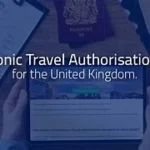Discover why major US companies are reducing H-1B visa sponsorship in 2024. Learn the factors behind the decline and how it impacts US hiring practices.
US Companies to Cut H-1B Visa Sponsorship in 2024 – Here’s the Reason Explained
In 2024, US companies are drastically reducing their US H-1B visa sponsorships, according to new data from the United States Citizenship and Immigration Services (USCIS). This decline, particularly among top US tech giants and Indian IT firms, signals a significant shift in hiring strategies. The move suggests that these companies may be moving away from relying on H-1B visa programs in favor of domestic talent and alternative workforce solutions.
Key Reasons Behind the Decline in H-1B Visa Sponsorship
The H-1B visa program has long been a vital channel for US companies to hire skilled foreign workers, particularly from India, for specialized roles in sectors like technology. However, the latest data reveals a notable decrease in H-1B visa approvals, especially among large tech companies such as Amazon, Infosys, and Tata Consultancy Services (TCS).
According to the USCIS, Amazon, which is traditionally one of the largest sponsors of H-1B visas, saw its approvals drop from over 11,000 in 2023 to just 9,000 in 2024. Similarly, Indian tech giants Infosys and TCS reported significant cuts in their H-1B visa approvals. These decreases reflect a broader trend, with almost all of the top 15 H-1B visa sponsors witnessing reduced numbers.
Major US Companies Cutting Back on H-1B Visa Sponsorship
Several factors contribute to this shift. Firstly, the evolving regulatory environment and rising compliance requirements may be encouraging companies to reassess their dependence on the H-1B visa system. Companies like Amazon, Infosys, and TCS are also dealing with the uncertainties of the H-1B lottery system, where the allocation of visas is unpredictable and capped at 85,000 annually.
Top H-1B Sponsors in 2024:
- Amazon
- Infosys
- Tata Consultancy Services (TCS)
- Meta Platforms (Facebook)
- Microsoft
- Apple
- Cognizant Technology Solutions
- IBM
Despite the overall decline, large companies continue to be major players in the H-1B sponsorship program. However, as the numbers show, these companies are increasingly seeking other methods of hiring talent, particularly from the US workforce.
Global Economic Factors Affecting H-1B Visa Sponsorship
Several global and domestic factors have contributed to this reduction. The ongoing global recession, the rise of AI technologies, and stricter visa compliance rules prioritizing US workers have all played significant roles. Additionally, the shift to remote work has reduced the need for foreign talent in specific locations, and companies have begun restructuring their workforce to address these changes.
The high fees associated with the H-1B visa process have also deterred many small companies from participating, while larger firms are opting for alternative visa programs, such as the EB-5 investor visa.
Impact on US Tech Industry and Future Hiring Practices
This significant decline in H-1B visa sponsorship by US companies may affect the future of the US tech industry. It could signal a change in how businesses approach hiring skilled talent, particularly in industries traditionally reliant on foreign workers. With many Indian IT firms like Infosys and TCS laying off workers and reducing sponsorships, it remains to be seen whether the US will continue to attract top international talent in the same way.
The reduction in US H-1B visa sponsorships by top US companies in 2024 is a crucial development to watch. As companies adjust to a new global economic climate and tighter regulatory frameworks, US businesses are rethinking their reliance on foreign talent. This shift could reshape the tech landscape and influence future immigration laws in the United States.



